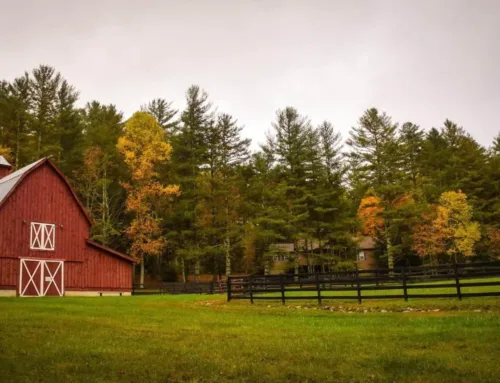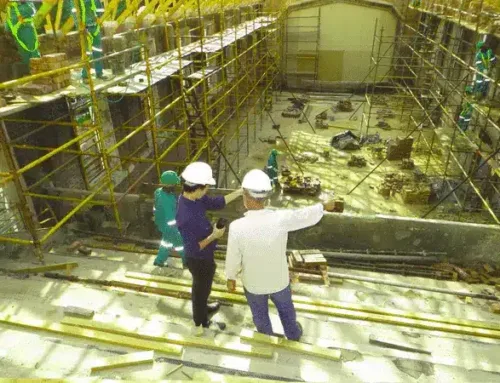Conducting a land survey is essential for anybody intending to buy a property or develop a piece of land. It provides you with the information you need to figure out whether you’re making the right decision to purchase and how to proceed.
Related: Land Survey Processing
Land surveys are primarily a dispute resolution and planning device. People often use them to determine who owns a particular chunk of land or whether it is suitable for a specific type of building.
Understanding this concept in its entirety, however, can be a challenge. Land surveys are variable and there are many reasons you might use one.
Land surveys are also technical. Developers often require the assistance of third-party specialists that have expertise in determining the legal boundaries of a building and the extent of its structure.
Does this sound confusing to you? Come and contact one of our team members today to help you at the Millman National Land Services.
What is a land survey?
At root, a land survey is a report that developers can use to ensure that they develop within the boundaries of a site. It helps make sure that you build on your land and avoid disputes with adjacent property owners.
Related: More information on Land Surveys
Types of land surveys
There are several different types of land surveys. Each of these caters to a specific need of the developer.
Related: The Standard Minimum Requirements for a Land Survey
Location Survey
A location survey helps to determine both the physical boundaries of a property and additional features of the site, including interior improvements. Its purpose is to ensure that development adheres to both the loan requirements and zoning rules.
A location survey will show the location of property improvements in relation to the property’s apparent boundary lines. This type of survey usually involves a physical inspection of the property, and the survey tends to be accurate plus or minus a few feet.
These surveys typically cost around a few hundred dollars. You should not use a location survey for the purpose of identifying your property lines when doing construction or figuring out boundaries for permits.
Construction Survey
Construction surveys are a high-level or general type of study that attempts to assess the suitability of land for the construction of specific types of projects. They are used by developers wanting to construct utilities, roads, and a variety of buildings.
Construction surveys help present locations and marks for any construction-related activities. This type of survey helps to maintain vertical and horizontal control during a construction project. Once construction is over, workers use the survey to assess the adequacy of the work and its final position. The survey also helps to calculate construction payments and to establish “as build” conditions.
Tasks involved in the construction survey include research, control, reconnaissance, and mapping of the project area. This helps to create a preliminary survey that will be used throughout the construction project. The result of this work will help to design and detail the overall project.
For construction surveying to be successful, you need to make sure you hire an experienced construction surveyor. The surveyor should have experience with similar construction projects, and they should know how to deal with other industry professionals.
Boundary Survey
A boundary survey determines the physical boundaries or perimeter of the property. This process usually involves extensive consultation of the original deeds to the property as well as an on-site examination. The purpose is to avoid disputes or confusion in the future that might put a project in jeopardy.
Boundary surveys are very important during the pre-construction process. This is because they help establish the perimeter of the property in relation to the site’s legal specifications. It’s important to get a boundary survey if you plan to buy, subdivide, improve, or build on the land.
Completing this type of survey beforehand will help you avoid potential lawsuits. Surveyors create the boundary survey based on two key components: a field survey and land records research. Document research includes reviewing available deeds, title certificates, easements, part surveys, and subdivision maps.
Subdivision Survey
Sometimes developers want to subdivide existing properties into smaller units. For instance, you might want to turn a townhouse into several flats or add commercial units to a shopping center. Subdivision surveys attempt to ensure that smaller lots meet street and draining requirements.
Also known as subdivision platting, this type of survey is often completed by using a metes-and-bounds system that helps to delineate individual plots of land within the main area. Each lot on the plant map is given an identifier, such as a letter or a number. The map then gets officially recorded with a local government entity to maintain consistency.
Depending on the subdivision survey, time requirements may be minimal and the cost may be similar to that of a boundary survey. However, larger subdivision plots may require more extensive planning, layouts, and perimeter work.
Topographic Survey
A topographic survey attempts to create a three-dimensional map of the area you intend to develop, marking out critical features such as the undulation of terrain and the location of embankments, ditches, drains, and roads. Usually, it also includes information on property boundaries.
By locating all of the surface features on a property, this type of survey helps to determine the existing conditions and elevation of a site. Also known as contour surveys, topographic surveys are often required as part of construction projects, real estate transactions, and civil engineer designs. Many local government bodies also require topographic surveys.
To measure topographic surveys, surveyors typically use GPS units or EDM instruments.
Site Planning Survey
A site planning survey combines both topographical and boundary surveys. It provides a comprehensive overview of the status of a site for residential, commercial, and industrial development. Land features are included in all their detail, allowing developers to characterize a site fully.
Site planning surveys help make improvements on properties, and they’re also used during new construction. The level of detail needed for the survey is typically determined by the governing jurisdiction for the site.
Are you looking for more information on land title surveys? Click here.
When you need a land survey?
Getting a land survey is helpful in its own right for developers. But there are key reasons why they’re essential.
First, they help avoid costly land disputes in the future. Before any construction work gets underway, you need to be sure that you have the legal right to develop a parcel of land. If you construct a building that infringes on another person’s property, you may be liable for legal action, and development may have to stop. Remember, every square meter counts, so you need to be entirely sure you have permission to develop.
Second, land surveys are useful when determining the value of a property or a plot. Figuring out much you should pay by simple eye-balling can lead to problems down the road.
Questions to ask yourself before constructing your own property.
Developers will often purchase property, believing it is suitable for development when it isn’t. A proper survey can help avoid this.
Take a look at our team and check out our land surveying services.
Does a buyer or seller pay for a land survey?
There is no legal requirement for either the buyer or the seller to pay for a land survey.
In general, the party who wants the survey is the one who pays. For instance, if the seller wants the survey, then they must hand over the money, and likewise for the buyer.
The amount you pay typically depends on the size of the property, with more extensive surveys costing more. The price is also partly dependent on the location of the land. Some plots are more challenging to survey from an administrative and technical perspective than others.
Check out “The Gold Standard” for a Land Survey.
Are you getting a new property survey?
Land surveys are also helpful if you plan on building your own home. People wanting to develop property need reputable agents. The latter can help them avoid disputes in the future and ensure they construct within current zoning rules.
Some people use online directories like Yelp, to find suitable partners. More often than not, it is better to choose a locally established firm with significant expertise in this area. If you’re pouring all your savings into a property construction project, choose professionals who have experience and are knowledgeable.
Even if you’re just planning on extending features of your property, a land survey can help. You can check whether you can extend in a particular direction or add new decking.
Related: Find out which land survey is right for you.
How Can We Help?
If you’re looking for experienced land survey professionals in your area, Millman can help. We’re experts in surveying land and can help you avoid conflict and dispute in the future, whether you’re a private developer looking to construct a dream home or a commercial outfit looking to complete a major development.
Millman has more than twenty years of proving its worth, helping hundreds of developers ensure that their land is suitable for their plans. We offer a host of land survey options, depending on the type of work you would like to carry out, plus full support in-house nationwide.
Millman offers licensed staff who create meticulous and accurate surveys of plots. And we back all that up with technical and legal knowledge, helping you cut risks and long-term costs associated with investment and development.
Conclusion
Land surveys are an essential tool to ensure that your development remains legal and in line with your loan agreements. They let you define boundaries, establish value, and avoid conflict.
Usually, the buying party will ask for a land survey to check that the property they want to buy offers all the required features for successful development. However, the seller may also provide a comprehensive land survey to increase the likelihood of a sale and convince developers that the plot offers everything that they want.
Either way, a land survey has the potential to benefit either party. It should be a standard component of any exchange, especially if you plan on developing the site in the future.
At Millman’s, we are here to help you build your dream property contact us today.









